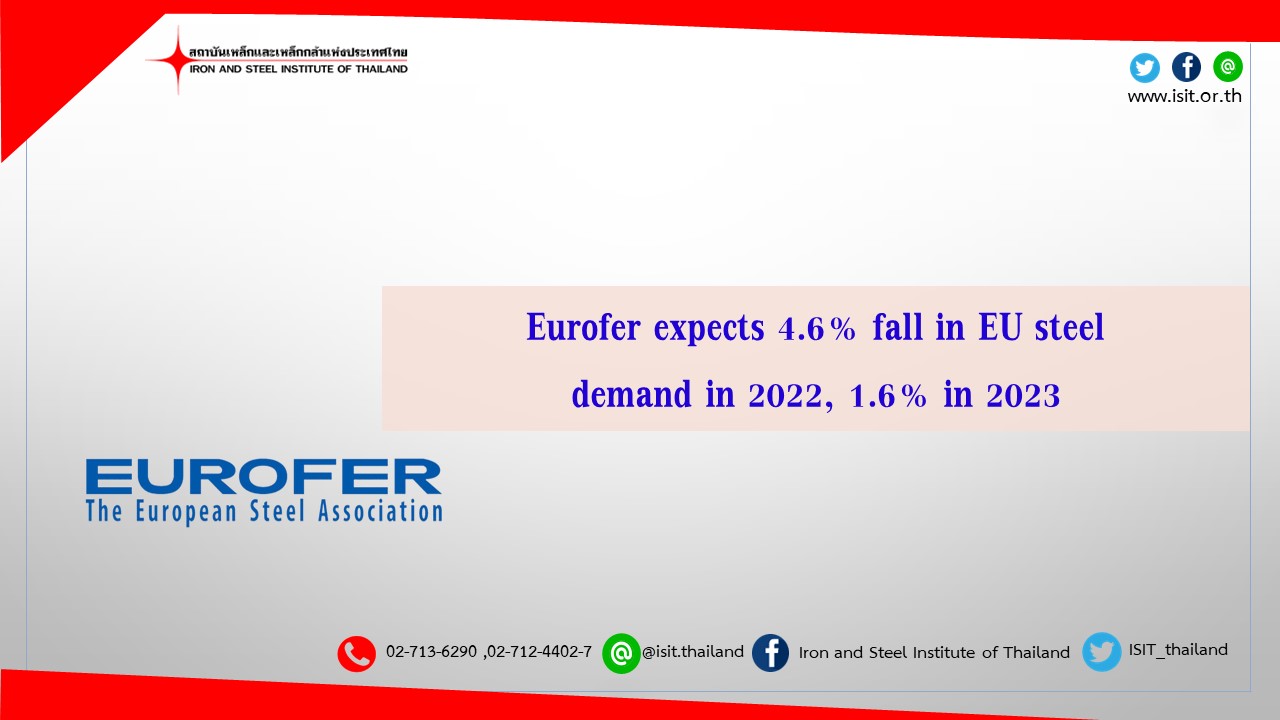
The European Steel Association, or Eurofer, said Feb. 2 it is expecting a steeper fall in 2022 steel consumption figures after data from the third quarter that confirmed and deepened the negative trends seen in Q2, with consumption set to continue falling in 2023 although at a slower pace.
In its latest economic and steel market outlook report, Eurofer said it was now expecting a 4.6% fall in 2022 steel consumption, compared with a 3.5% drop it had flagged for the year in its previous outlook.
For 2023, consumption is expected to decline a further 1.6%, slightly less than its previous forecast of a 1.9% fall for the year.
It said that, despite a more general resilience of the EU economy, apparent steel consumption in the third quarter of 2022 reached its lowest level since Q3 2020, falling 11.2% to 32.2 million mt, after a 4.7% drop in Q2.
All downside factors that materialized in H1 2022 have persisted, it said, with further drops expected in Q4 2022 and until the first half of 2023 at least. As a result, 2023 is set to be the fourth year of steel demand recession in the last five.
Steel demand is then expected to recover 1.6% in 2024, although uncertainty remains and the recovery would remain conditional on the evolution of energy prices, the Russia-Ukraine war, and their impact on inflation and global supply chains, Eurofer said.
The association said that domestic deliveries dropped 10.5% in Q3 2022, the third consecutive quarter of falls, as did imports, including semi-finished products, which fell 17.2% for the first time since 2021.
“We are witnessing what we have been warning against in the past months: energy crises, inflation, supply chain issues, unparalleled decarbonization costs combined with massive cheap imports from third countries, are a toxic cocktail for industry,” Eurofer Director General Axel Eggert said in a statement.
“The health of the steel sector is the litmus test for the whole EU industry, given the numerous value chains with steel at their core,” he added, which he said should “ring the alarm bell for the development prospects of Europe’s cleantech economy.”
Eggert explained that the energy transition’s foundations must lay on and boost EU low carbon steel demand to be successful.